|
|
|
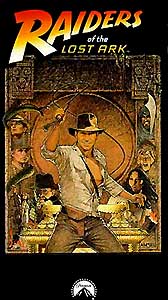 -
-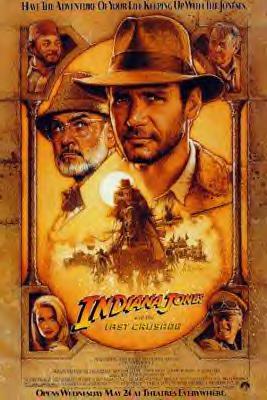 -
-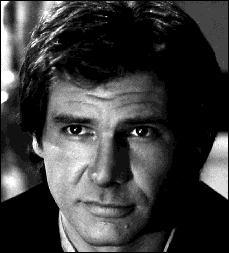 -
- -
-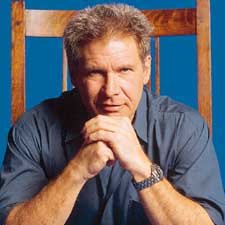 -
-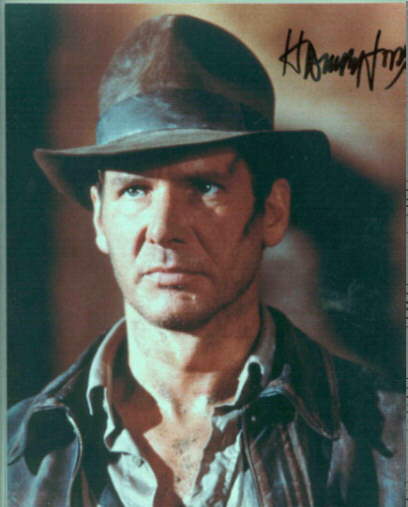 -
-
Filmographie:
2005/ Indiana Jones 4 - 2004/ Fred Cuny bio-pic - 2003/ A Walk among the Tombstones - 2003/ Hollywood Homicide (formally titled Two Cops) - 2002/ K-19: The Widowmaker - 2000/ What Lies Beneath - 1999/ Random Hearts - 1998/ Six Days Seven Nights - 1997/ Air Force One - 1997/ The Devil's Own - 1995/ Sabrina - 1994/ Clear and Present Danger - 1993/ The Fugitive - 1992/ Patriot Games - 1991/ Regarding Henry - 1990/ Presumed Innocent - 1989/ Indiana Jones and the Last Crusade - 1988/ Working Girl - 1988/ Frantic - 1986/ The Mosquito Coast - 1985/ Witness - 1984/ Indiana Jones and the Temple of Doom - 1983/ Return of the Jedi - 1982/ Blade Runner - 1981/ Raiders of the Lost Ark - 1980/ The Empire Strikes Back - 1979/ Hanover Street - 1979/ The Frisco Kid - 1979/ Apocalypse Now - 1978/ Force 10 from Navarone - 1977/ Heroes - 1977/ Star Wars - 1974/ The Conversation - 1973/ American Graffiti - 1970/ Getting Straight -1968/ Journey to Shiloh - 1967/ A Time for Killing
Un-credited Film Appearances
Tv Films & Documentaries
Tv Series Appearances
Biographie:
(auszug)
Harrison Ford was born on July 13,
1942 in Chicago. In the words of Ford himself, there was not one thing
unusual about his upbringing. He was a typical product of the Midwest born
into a typical middle class family.
Something of note about Ford's early
life: He didn't enjoy going to the movies. He was perpetually unaffected
by films and never was a serious fan, although he and his younger brother
Terrence went often when he was younger. When Harrison reached his teen
years, the only reason he saw movies at all was for dating purposes.
Ford was a typical high school misfit.
A quiet, shy, boy, he was always a loner thoughout his youth. But of course,
as with all people who don't fit in, he was bullied endlessly. In his own
words, "I was kind of a runty kid. The boys would get together and throw
me over the edge of the parking lot into the weeds every day at recess."
Although Ford remained fairly shy,
he became more accessible as his teenage years progressed, going to parties
and joining school activities. However, he remained a loner and was never
popular with girls.
Ford graduated from high school
in 1960 and went on to college, not of any driving ambition to do so, but
because it was expected of him by his teachers. He attended a small liberal
arts school, Ripon College, in Wisconsin. Being lazy and unmotivated academically,
he did not do well, always near failure. After failing to complete a thesis
on playwright Edward Alby, Ford was booted out of Ripon - three days before
graduation.
One good thing did come out of Ford's
college nightmare, however; he started taking drama courses. Being shy,
this was an especially bold step for him to take. He was terrified by acting,
having had the wits scared out of him in his first stage appearance. But
he became addicted to acting, and it put an end to the thought of a dreary
future as a working-class individual. During the summer of 1964, he join
the Belfry Players for a season of summer stock.
On June 26, 1964, Harrison Ford
made his professional acting debut. Neither he nor anyone else knew exactly
how far this would go. Harrison was hardly looking for superstardom.
Ford headed to the West Coast with
his college sweetheart and soon-to-be wife, Mary Marquardt, to seek work
as an actor. It would be a difficult task. Harrison knew little about acting,
besides the fact that you had to to go Hollywood to get the work. The height
of his ambition was to be a TV actor.
While working many different day
jobs, the primary one being being a pizza chef, Ford searched for work
as an actor. He didn't get much of it, save for a seven year contract with
Columbia Studios for $150 a week he got after being recognized at the Laguna
Beach Playhouse by a Columbia agent, who seemed to be the only person who
understood the talent of Harrison Ford.
The young actor's first actual movie
was Dead Heat on a Merry-Go-Round. He had a grand total of three lines:
Paging Mr. Jones, Mr. Jones, and Paging Mr. Jones again. It was hardly
an impressive screen debut. After playing numerous bit parts in movies,
such as his mercifully small part as a hippie in Luv, he was booted from
his Columbia contract, because he, in the words of a Columbia executive,
had no acting talent. Harrison was hardly sorry; the Columbia execs had
wanted him to change his, saying Harrison was 'too pretentious.' He then,
in 1967, signed a similar contract with Universal Studios, which had a
different policy than Columbia - they would try to get their contracted
actors into television roles. Although he got numerous (admittedly small)
television roles in shows like The Partridge Family, Gunsmoke, Kung Fu,
and The Virginian, acting just wasn't paying the rent for his family, which
now included his newborn son Benjamin. In 1974, he turned his back on acting
and became a full-time carpenter, learning the required carpentry skills
out of books he got from the library, and then practicing them on his new
house. He enjoyed his new profession.
Ford became, in effect, "carpenter
to the stars". After his first job, building a recording studio for Brazilian
composer Sergio Mendes, word spread. Most of his jobs were for people in
showbiz. When the money started to come in, he began to accept acting jobs
again, not so much to pay the rent, but because he wanted to.
Finally, Harrison's big break came.
One of his clients, Fred Roos, was a casting director at Universal, who
had just been appointed to an unknown director named George Lucas for a
film called American Graffiti. Roos got Ford the part of Bob Falfa for
$500 a week. The film was the surprise smash of 1973, and Ford found himself
moving up in the acting world. Roos gave Ford another job idea: the part
of the smuggler Han Solo.
Ford had no illusions about getting
a part in Star Wars. But by some increadibly strange twist a fate, he ended
up installing an entrance at Goldwyn studios, the exact same location where
George Lucas was hold interviews for Star Wars.Ford hadn't been high on
George Lucas's list of candidates to play Han Solo. But three or four days
before the final casting decisions, Ford was asked to read the part of
Han with the actresses up for the part of Princess Leia. When Lucas called
Ford to ask him to read, Ford was working at the home of Sally Kellerman.
When Ford recieved the call, he left Sally's house so fast he left all
his tools and his overalls behind. Kellerman still has them on display
today. To Harrison's disbelief, Lucas gave him the part.
Ford had an enjoyable time during
the shooting of Star Wars. After the Tatooine desert scenes were shot in
Tunisia, the crew moved to London. Although he remained true to his reserved
personality, Ford did have a great time during the shooting. He carried
out a wide array of practical jokes which made the English crew think he
was insane. Ford was fairly unrepentant about this, however.
His future as an actor was sealed
when Star Wars was released on May 25, 1977. It was a box office smash
and a merchandiser's dream, doing better than Lucas or anyone else had
ever dreamed it would. Ford now had financial security for his family (which
included his second son Willard), a face that was known around the globe,
and creative freedom.
Harrison's career took a bit of
a blow after Star Wars. He took poor roles, although his motive, trying
to avoid typecasting, was sound. He took a small part in Heroes as Ken
Boyd, which flopped. He then took another small role in Apocalypse Now.
One good thing did happen during this time period, however. Ford met screenwriter
Melissa Mathison, who, after his breakup with Mary Marquardt, became his
wife. Ford and Mathison married in 1983.
The Empire Strikes Back rejuvanated
Ford's career. Han Solo had a much more important part in this film, and
Ford was pleased with his performance after the shooting. Empire was just
as successful as its predecessor, despite the chaotic production.
It was that summer of 1977 that
George Lucas and Steven Spielberg first developed the character of Indiana
Jones, the adventurous, slightly immortal archaeologist.
The first choice to play Indiana
Jones was, surprisingly, Tom Selleck. But when CBS refused to release Selleck
from his TV (Magnum)contract, the role eventually fell to Ford, after numerous
other actors passed on the part.
Harrison, surprisingly, did most
of the stunts for the movie, save anything that could be potentially fatal.
He also became extremely adept with the famous Jones bull-whip.
Raiders of the Lost Ark, besides
being the most fun Ford had ever had doing a film, won him the most notice
of his career so far. He was at last, a recognized, stand-alone star. Ford
hardly relished the attention, however. Hero worship made him uncomfortable.
As a result, for his career from them up until 1996, he tried several times
to take roles where his character was not the all-American hero they had
been in the past. These movies rarely did well.
Blade Runner was the first of such
films. Ford calls it the only film he was ever totally unhappy with. It
proved to be a nightmarish experience for many involved in it's creation.
Loosely based on Philip K. Dicks book 'Do Androids Dream of Electric Sheep'
the film was generally rejected because of the bleak future it presented.
Ford played Rick Deckard, the dark, brooding hero who hunts down and destroys
androids in Los Angeles, 2019. The tension between Ford and director Ridley
Scott only made the conditions on the set become more nightmarish. Scott
demanded numerous takes of every scene, and it finally wore Harrison out.
Ford says, "This film was not one of my favorites. I played a detective
who did no detecting." The film, despite being a flop, is a cult classic
which still endures today.
After Blade Runner, Ford returned
to the familiar character of Han Solo in Return of the Jedi. Actually,
Ford did not want to do Return at first. He wanted Han Solo to die, thinking
it would be valiant for the character. Han Solo had a decidedly smaller
role in the third installment than in the previous ones; the third movie
focused mostly on Luke Skywalker and provided little character development
for Han. The reason Han Solo was encased at carbonite at the end of Empire
was because George Lucas was unsure if Ford would sign for the next movie,
which he did, in the end, after much prodding from Lucas. The film, naturally,
was a huge success.
After Return of the Jedi came the
second installment of the Indiana Jones adventures, this time a prequel,
called Indiana Jones and the Temple of Doom. Lucas's team took great pains
to make Temple just as good, yet different, from its predecessor. The filming
was also more difficult, considering that Ford ruptured a spinal disc.
This injury came not from jumping from a plane or swinging from a bridge;
it came from trying to master the art of elephant riding. Harrison was
off the set for six weeks recuperating. Amazingly, the movie was still
completed on schedule. The film was darker and spookier than its predecessor,
yet easily matched its box office successes.
One interesting tidbit about this
film: the PG-13 rating was created to most effectively warn people about
its content. The film was too gory and violent for an PG rating, yet an
R rating would would exclude the young people, who were such an important
part of the audience, from seeing the filme. The MPAA Rating Board took
the step of creating the PG-13 rating as a compromise.
On the verge of being typecast as
a comic book hero, Ford began to hunt for a role in which his abilities
as a serious actor would be magnified, and the outcome was Witness, a murder
mystery/love story set in an Amish community. Ford and others were slightly
worried about the outcome. Could Harrison really carry a whole movie with
just his acting ability?
As it turned out, their worries
were unfounded. The film was a success. It represented Ford's best acting,
and his only Academy Award nomination, for best actor in 1985.
Ford reportedly enjoyed making the
film greatly, and had a rapport with Peter Weir, the director of Witness.
"My relationship with Peter worked more than it ever has with a director
before," says Ford. Ford won acclaim for his acting, and the film was also
a critical, as well as box office, success.
After success in Witness, Ford set
out to find an anti-hero role. After discarding many proposed scipts sent
to him, he took a role as Allie Fox in The Mosquito Coast. The plot centered
around Fox, convinced that America is decaying, moving his family to the
remote jungles of the Mosquito Coast, a strip of land in Central America
which extends from Guatemala to Panama. The film was a major disaster.
First of all, the shooting was demanding, often working 16 hours days in
the sweltering jungles of Belize. Although the script was an actor's dream,
the book it had been based on best-selling, and Ford's acting good, the
film flopped. Critics pounded it and it was very unpopular with American
audiences, partly because Allie Fox, Ford's role, was about as unheroic
as you could get, a harsh, umsypathetic person. Despite its lack of success,
it resents some of Ford's finer acting. (I wish I could offer an opinion
on this, folks, but having never seen it, you'll just have to deal with
someone else's opinion.)
Harrison and his second wife, Melissa
Mathison, had been brought together because of their dislike of Hollywood.
The social life, the city atmosphere, all of it. He dreamed of escaping
to the country, and in 1985, he did it. After purchasing 800 acres of undeveloped
land seven miles from the town of Jackson Hole, Wyoming, he moved into
a two story farmhouse. His home is no different from the home of most rural
Americans. He is very active in the Jackson Hole community, sponsering
a childrens' ski trip and helping to raise funds for a local library.
Ford and Mathison had two children,
Malcolm and Georgia, in 1987 and 1990, respectively. Ford always makes
sure he can bring them along when he leaves home to make a film. He wants
his children to know their 'real daddy', not the one they see in the movies,
and in this he was successful. Ford says, "Whenever Georgia sees me on
the screen, and someone asks her, "Who's that?, she says, 'That's my other
daddy.'"